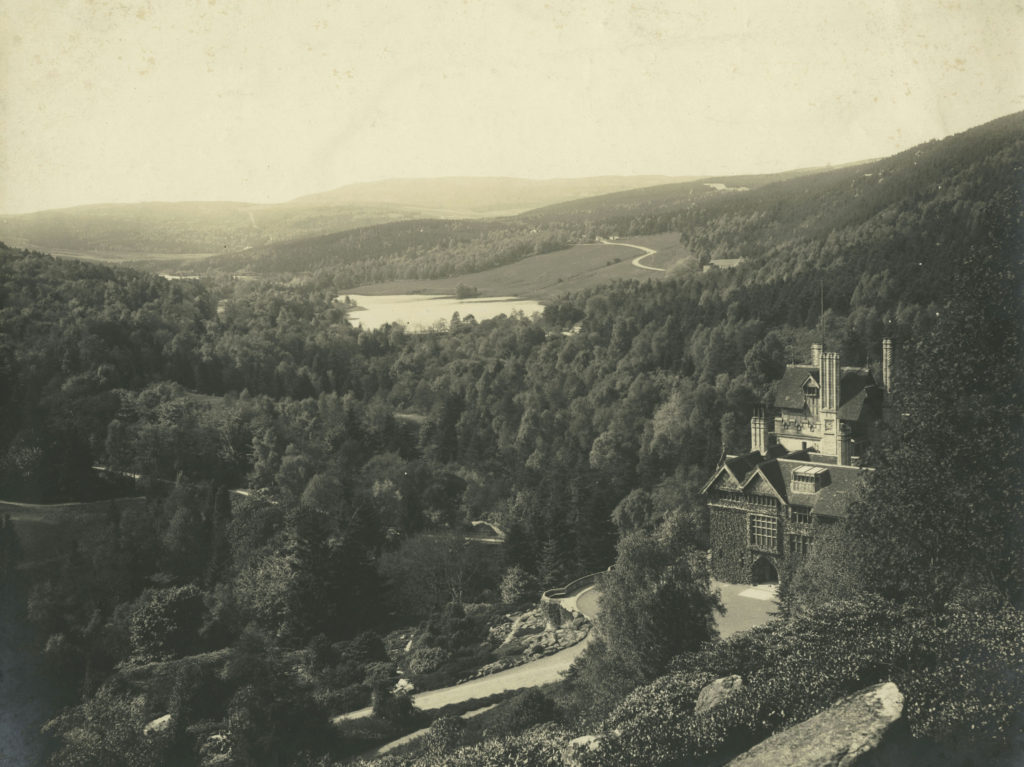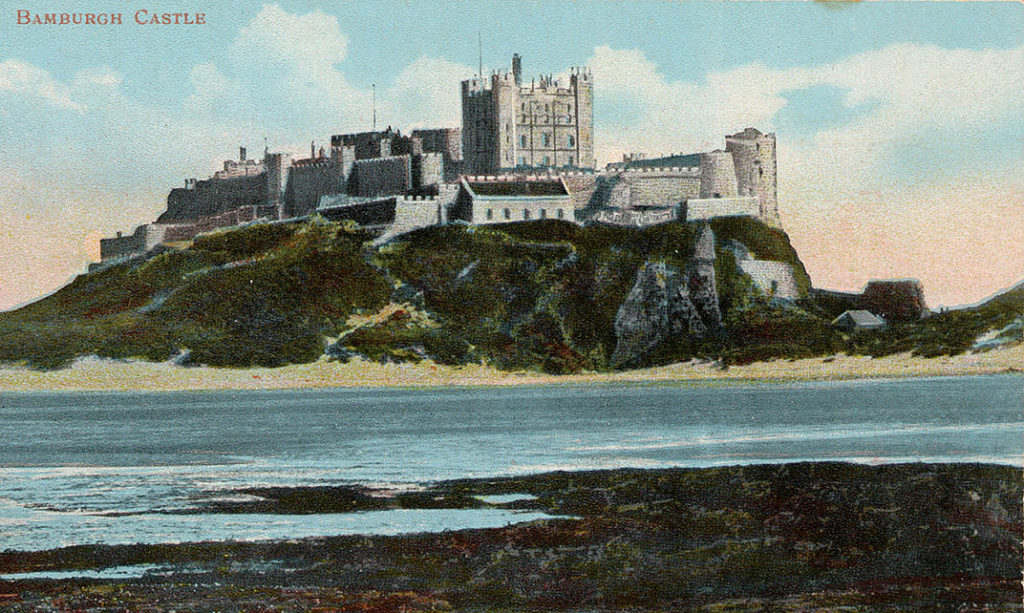BERWICK JOURNAL, 28TH FEBRUARY 1924
LORD ARMSTRONG SELLS LIFE POLICIES
It is understood, says “London Express,” that the peer whose life policies, amounting to £320,000, were sold by auction on Thursday for £104,910, is Lord Armstrong, of Bamburgh and Cragside, North Northumberland. He is a great-nephew of famous founder of shipbuilding and armament firm of Armstrong, Whitworths, on Tyne, at Elswick, and he was at one time a director of the firm. Lord Armstrong resigned that position in Feb., 1908.
Lord Armstrong did not succeed his great uncle in the title, but he was heir. First Lord Armstrong left a fortune of the gross value of £1,399,946, and by his will he bequeathed all his real estate, household effects as heirlooms, and all live and dead stock to his great nephew (who was created Baron Armstrong in 1903), and his heirs entail. Residue of the estate, after payment of a number of bequests and annuities, was left in trust to his great nephew for life, with the remainder to his children. Present Lord Armstrong took active interest in a number of ventures that were unsuccessful. He also interested himself financially in a number of syndicates, including an early wireless telegraphy undertaking, a drug and drink cure enterprise, mining and oil scheme.
Permission to sell heirlooms was given by the Courts to Lord Armstrong in 1910. The pictures and drawings realised £29,032. Further interest in his financial affairs was aroused last year when he announced that he was closing Cragside, famous Northumberland estate of the family, and was going to live at “The Cottage,” formerly the residence of his estate agent in the grounds.
There was considerable speculation (says “Graphic”) as to ownership of insurance policies for sums amounting with bonuses to upwards of £320,000 “on the life of a nobleman born on May 3, 1863,” sold by auction by Messrs H.E. Foster and Cranfield, of Poultry, London, realising in all the sum of £104,910. It was stated this is the biggest block of policies on a single life that has ever been offered publicly in London.
“Who is the nobleman?” people were asking for, even in these days of heavy taxation, a transaction of this size was so unusual as to give rise to curiosity. The auctioneers had not disclosed his identity. “He is travelling abroad for his health,” was all the information they gave.
I am able to say the nobleman is Lord Armstrong, whose great uncle, first Lord Armstrong spent nearly a million on the restoration of historic Bamburgh Castle, rare pile formerly the home of Tom Forster and Dorothy Forster, of Jacobite fame, frowning from an eminence over North Sea. Cragside, too, is one of England’s show places. It is built on a site of surpassing loveliness and was regarded by the old shipbuilder as the masterpiece of his career. It was into this heritage that the 2nd Lord Armstrong entered some 23 years ago.
For many years Lord Armstrong has been the patron of good causes in London and the North of England. His generosity was proverbial. He heaped splendid benefactions on Durham College of Science at Newcastle, which was then rebuilt and re-named Armstrong College, and he gave £100,000 to Newcastle Infirmary. He also gave generously to London hospitals. Appeals for help, and for personal assistance, were seldom made to him in vain.
His son and heir, imbued with the same philanthropic desires as his father, astonished his friends early in life by becoming violently Socialistic. The last time I heard from him he was Vancouver Correspondent of “Montreal Star,” and he told me he was working 10 hours a day.
It was in Feb., 1923, announcement was made that Lord Armstrong of Cragside, and Bamburgh, had gone to live in a “cottage” in consequence of burden of present day taxation.
I have been much surprised (wrote Lord Armstrong at the time) at the exceptional interest aroused by my closing the Mansion-house at Cragside, and retiring to the smaller house in the grounds which was for some years occupied by my late steward.
For many other landowners have been compelled from motives of enforced economy to adopt a similar course- where indeed they have not been forced to take the more drastic and tragic alternative of selling their ancestral acres, and thus in many cases severing lifelong associations with a district hallowed to them by friendships and mutual goodwill and by cordial relations with all classes of their neighbours.
The reason for the step that I have taken may shortly be stated to arise from the desire “to make ends meet,” a not unworthy ambition, though apparently one less esteemed by governments and public than it was in the old days before the war. Among the causes that have led to this decision I may enumerate the following: –
- The very heavy income-tax which takes 9s 6d in the pound (last year it was 10s 6d) off my rent roll, though that remains the same as it was in pre-war days.
- The tithe that I pay now amounts to about 1s in the pound, which is more than 100 per cent. Increase on the pre-war amount.
- Estate wages, which before the war amounted to from 21s to 26s a week, with house and coal, now reach from 42s to 50s a week, with similar perquisites, in spite of which increase I believe that my estate staff is less well off now than formerly.
- All rates have largely increased.
- Increased management expenses.
These items, together with the great increase in the cost of the necessary upkeep of farms and cottages, absorb most of the income from my landed estates.
The, with reference to my personal estate, my income from industries, in which I am largely interested, has roughly decreased since the war by two-thirds, while interest on mortgages has increased by 1½ per cent., and in some cases 2 per cent. I am further mulcted by the injustice of having to pay super-tax on my insurance premiums.
I would further point out with all these reductions from my rent-roll that charges on the estate for pensions and allowances naturally remain the same. It is for these reasons that I have been compelled to forego the upkeep of a large domestic establishment such as a house the size of Cragside entails.

I am aware that a similar complaints have frequently been published before, though they seem to have fallen upon deaf ears if one can judge by the immense number of begging letters with which I have been inundated since I made this announcement.
These appeals come from all quarters of the British Isles and the Continent, and are of a varied description. Some ask for gifts and loans varying in amount from a few pounds to hundreds; others propose that I should join them in mercantile adventures; and I receive invitations to set up in life young couples anxious to enter the state of matrimony-all of which present a pitiful though curious phase in human psychology.
In conclusion, I should like to add that I can see but little hope for landowners and their dependants, or for the survival of those honourable traditions which have for so long been associated with land tenure in this country, unless in the near future we have a substantial reduction in the burden of taxation.
Failing this relief, estates will, of necessity, be constantly changing hands. Though many of the new owners will prove worthy successors to their predecessors, in the majority of cases the estates will fall into the hands of land speculators who will care nothing for the welfare of the people dwelling thereon, while their sole object will be personal gain, thus bringing blight and disaster on our countryside.
North Northumbrians will be interested to learn that a new but flourishing company has been founded in British Columbia by Capt. Hon. William Watson-Armstrong, son of Lord Armstrong, aim of which is importation of high grade British manufactured good, and also establishment of import and export business with Ceylon, India, and countries of the Orient. The concern, which is registered under name of Messrs William W. Armstrong and Co., 912, Birks Buildings, Vancouver, has agencies for several, British firms. For 2 years Capt. Armstrong was on staff of “Vancouver Sun.” With him in partnership is Mr A. O. Barratt, also a Northumbrian. Capt. Armstrong, who was born in Oct., 1892, is now 31, and was an Officer in 7th N.F. He gained a First Class in Part II. of Historical Tripos at Cambridge. His University career was most successful. Previously he was placed in 1st Division of 2nd Class of Inter-Collegiate Examination in History, and in Part I. of Historical Tripos. He won Bowen Prize of his College for Modern History.


That was most interesting. Thank you. I am a volunteer at Cragside and always looking for more information to pass on to the visitors to the house. The information contained within the article was very informative
👍